Portal for more climate-friendly mobility

The green energy coalition
The Swiss universities ETH Zurich and EPFL, together with other partners from politics, science and industry, want to promote solutions for the storage and transport of renewable energy sources. The goal: a climate-neutral and flexible energy system for Switzerland.
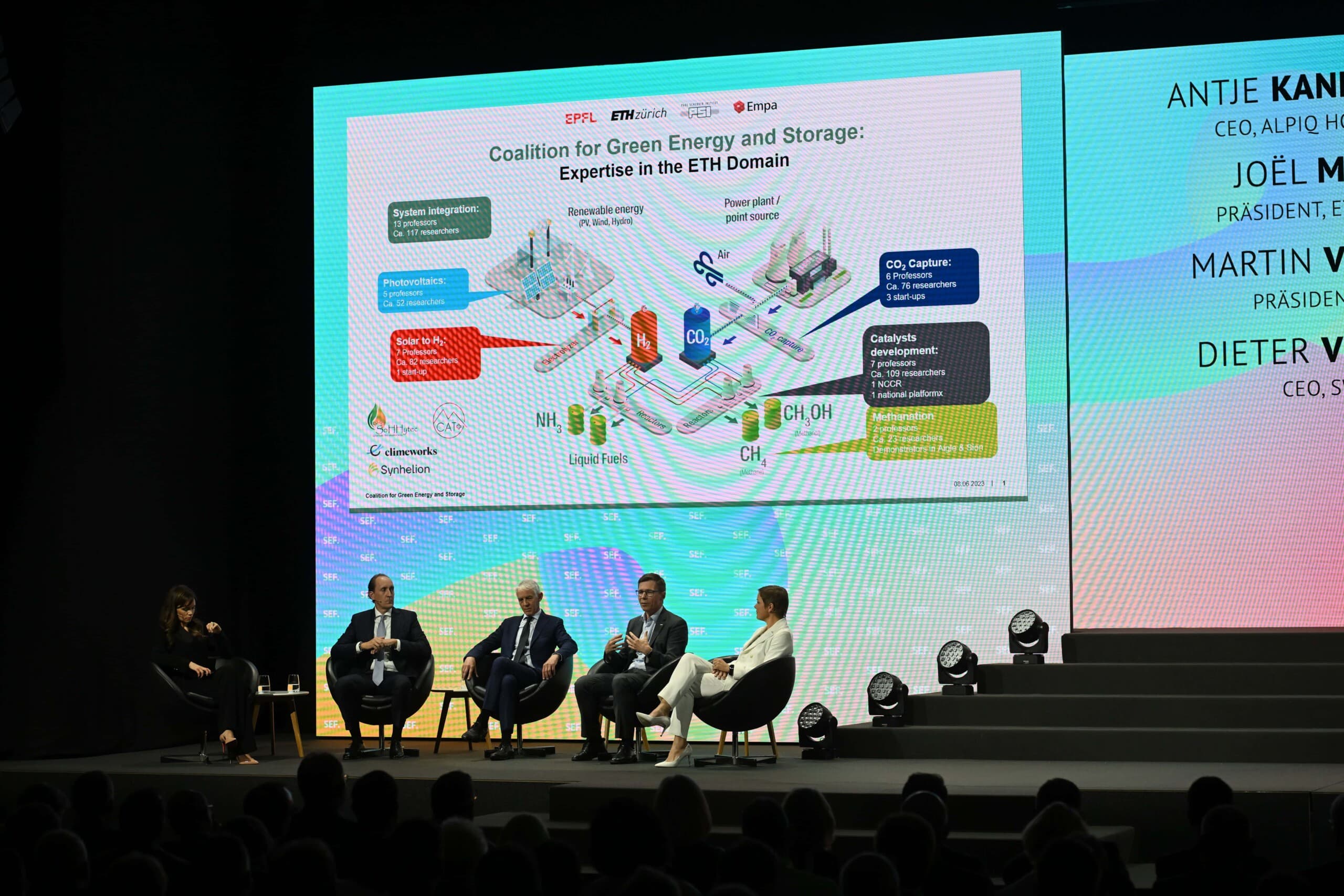 SEF moderator, Swiss CEO Dieter Vranckx, EPFL President Martin Vetterli, ETH President Joël Mesot and Alpiq CEO Antje Kanngiesser discuss the «Coalition for Green Energy and Storage» at the Swiss Economic Forum (from left to right). Source: SEF
SEF moderator, Swiss CEO Dieter Vranckx, EPFL President Martin Vetterli, ETH President Joël Mesot and Alpiq CEO Antje Kanngiesser discuss the «Coalition for Green Energy and Storage» at the Swiss Economic Forum (from left to right). Source: SEF
In order to achieve the net-zero target set by politicians by 2050 and at the same time avoid an energy gap, Switzerland is dependent on renewable energy sources, seasonal storage options and an efficient connection to the European electricity market. In addition to pumped storage power plants, batteries or heat storage systems, synthetic fuels in particular, so-called e-fuels, but also renewable gases such as biogas and hydrogen offer an interesting possibility to store, transport and trade, among other things, cheap electricity from photovoltaic plants in the summer for the winter.
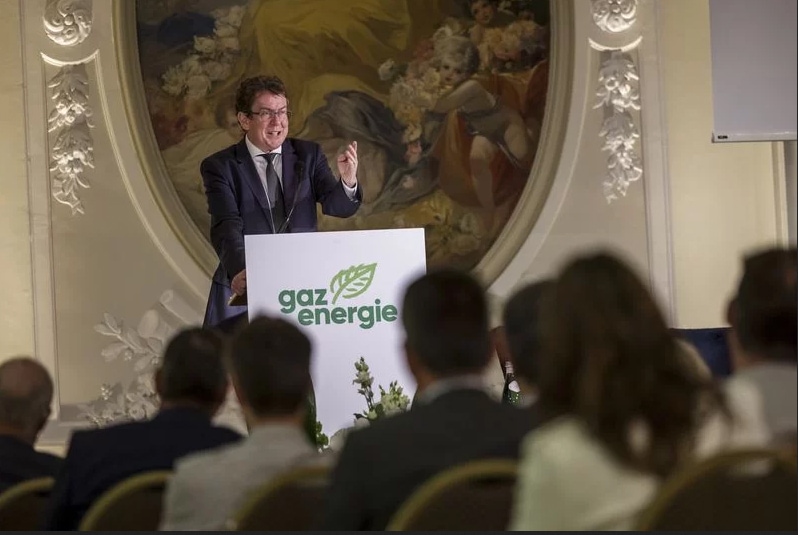 Federal Councillor and Energy Minister Albert Rösti during his energy and climate policy assessment at the VSG AGM. Source: VSG
Federal Councillor and Energy Minister Albert Rösti during his energy and climate policy assessment at the VSG AGM. Source: VSG
At the General Assembly of the Swiss Gas Industry Association, VSG President Martin Schmid emphasised that the industry was making great efforts to further increase the share of renewable gases in the grid. He pointed out that the potential of domestic renewable gas production is still not being exploited enough due to a lack of framework conditions and called for better political framework conditions for renewable gases. «We cannot predict the future, but the energy crisis has made it clear how important gas is as an energy source,» Schmid said. Even Federal Councillor Albert Rösti pointed out this important role in the Swiss energy mix – especially for industry and commerce – in his energy and climate policy assessment at the AGM. The Energy Minister expressed confidence that the gas industry is on the right track to make the transformation to a climate-neutral energy supply.
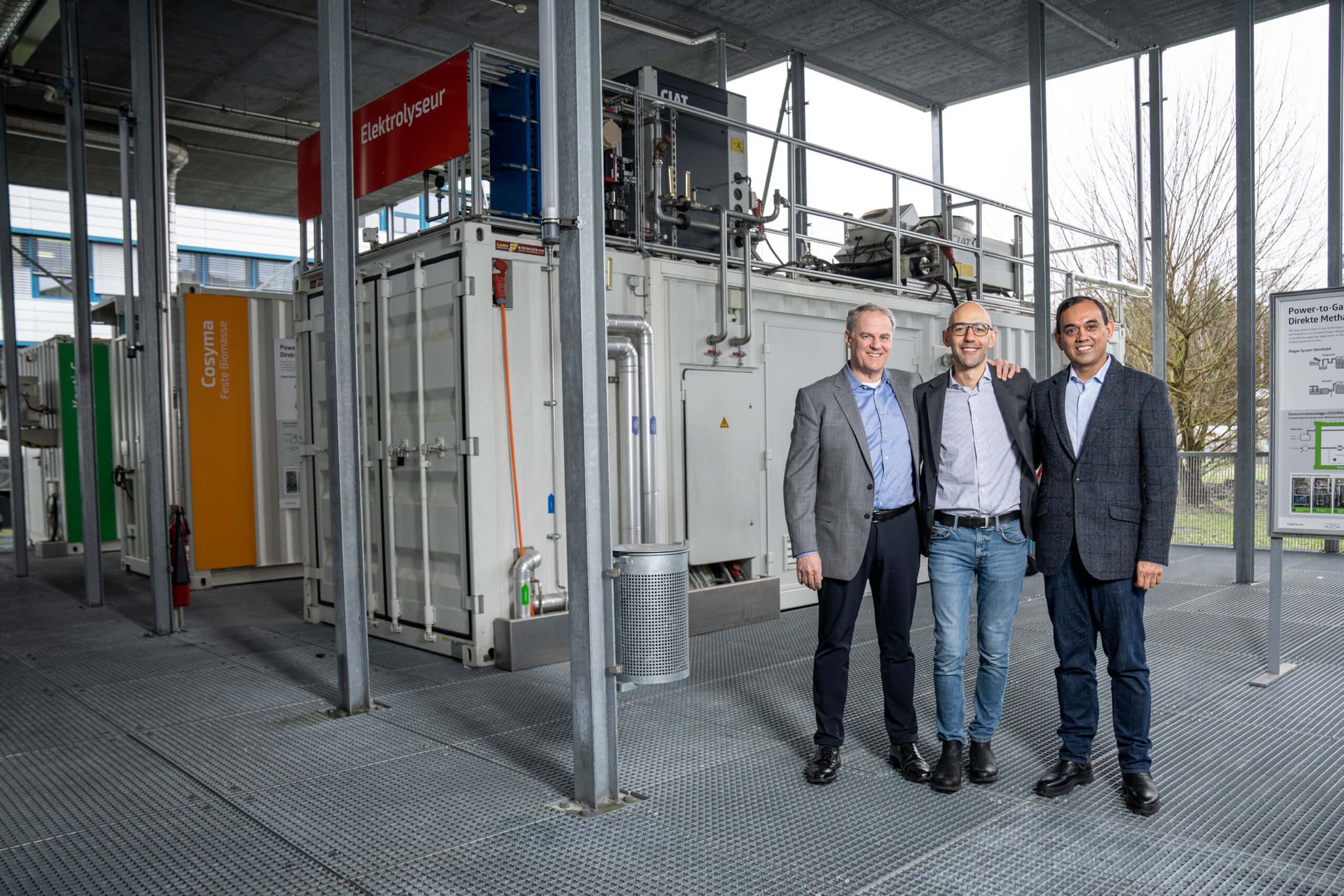 Leigh Hackett (left), Saurabh Kapoor (right) from Metafuels and Marco Ranocchiari from PSI on the ESI platform. Here, a new pilot plant in the form of two container modules is being built to produce synthetic paraffin from renewable resources. Source: Paul Scherrer Institute/Mahir Dzambegovic
Leigh Hackett (left), Saurabh Kapoor (right) from Metafuels and Marco Ranocchiari from PSI on the ESI platform. Here, a new pilot plant in the form of two container modules is being built to produce synthetic paraffin from renewable resources. Source: Paul Scherrer Institute/Mahir Dzambegovic
Numerous promising technologies are already in the pipeline, but they are not yet fully operational. That is why the two Swiss universities, ETH Zurich and EPF Lausanne, now want to join forces and create a «Coalition for Green Energy and Storage». «With this coalition, we want to bring existing technologies for CO2 capture and for the production and storage of carbon-neutral gases and fuels quickly to market maturity and raise them to an industrial level,» explains ETH President Joël Mesot, among others, at the Swiss Economic Forum in Interlaken. The goal is to create a scalable, climate-neutral and flexible energy system within a reasonable period of time.
 EPFL President Martin Vetterli and ETH President Joël Mesot (right) launch a green energy coalition together with partners. Source: Fred Merz/Lundi13/EPFL
EPFL President Martin Vetterli and ETH President Joël Mesot (right) launch a green energy coalition together with partners. Source: Fred Merz/Lundi13/EPFL
Achieving this will require a joint effort between science, politics and business.«The two Federal Institutes of Technology alone have 150 research groups in the field of energy, as well as around 460 researchers and four successful spin-offs in the field of CO2 capture and energy storage,» adds EPFL President Martin Vetterli. «Together with other research groups from PSI and Empa, the ETH Domain has both the know-how and the size to respond to current challenges together with companies.»
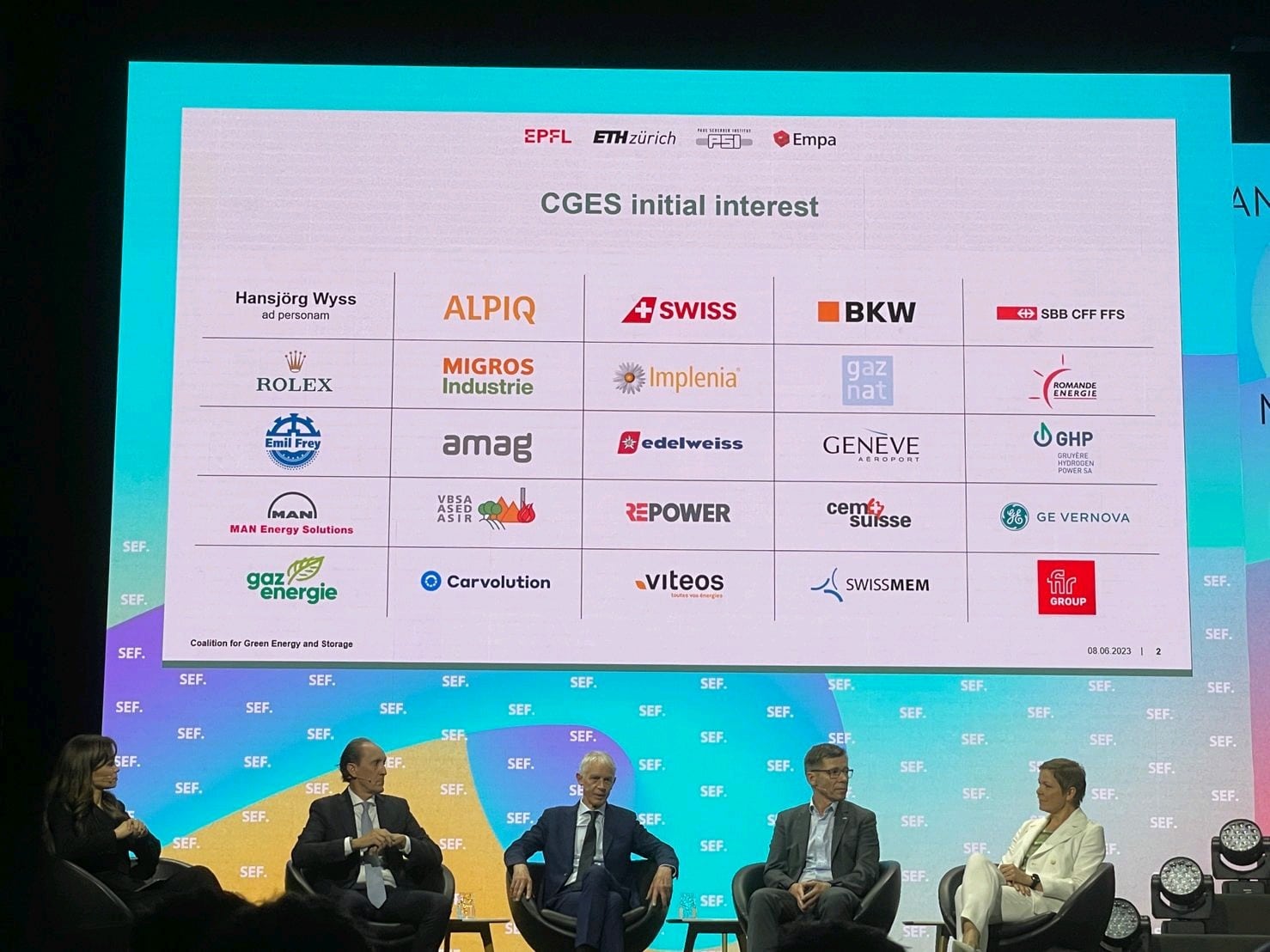 The «Coalition for Green Energy and Storage» initiated by ETH Zurich and EPFL is meeting with lively interest. Source: SEF
The «Coalition for Green Energy and Storage» initiated by ETH Zurich and EPFL is meeting with lively interest. Source: SEF
Around 20 companies and organisations have already expressed their interest in working together as technology and implementation partners, or as financial backers. In addition to the car importers Amag and Emil Frey and airlines such as Edelweiss and Swiss, there are also the energy suppliers Gaznat, Viteos SA and Romande Energie from western Switzerland, as well as the Swiss Gas Industry Association.
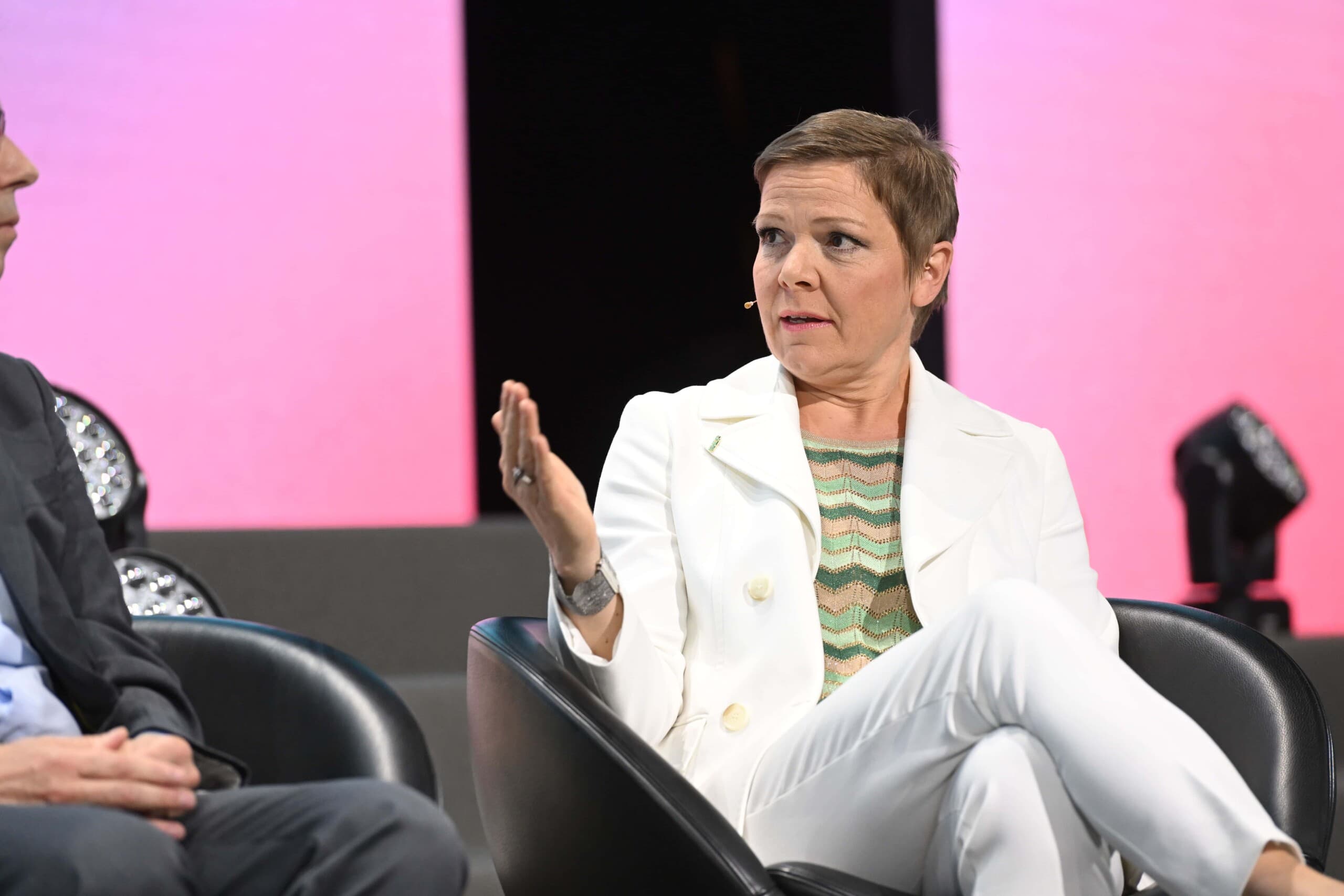 Alpiq CEO Antje Kanngiesser welcomes the initiative, saying it will strengthen Switzerland as a business and science location. Source: SEF
Alpiq CEO Antje Kanngiesser welcomes the initiative, saying it will strengthen Switzerland as a business and science location. Source: SEF
With Swiss and the energy service provider Alpiq, two heavyweights of the Swiss economy have been on board from the beginning.«We are proud to be part of this energy coalition. Together we are driving forward the production of synthetic fuels, which are one of the biggest levers for us to fly ever more sustainably in the future,» says Swiss CEO Dieter Vranckx. «At the same time, new possibilities for energy storage are being created, which increases Switzerland’s security of supply and serves society as a whole.»
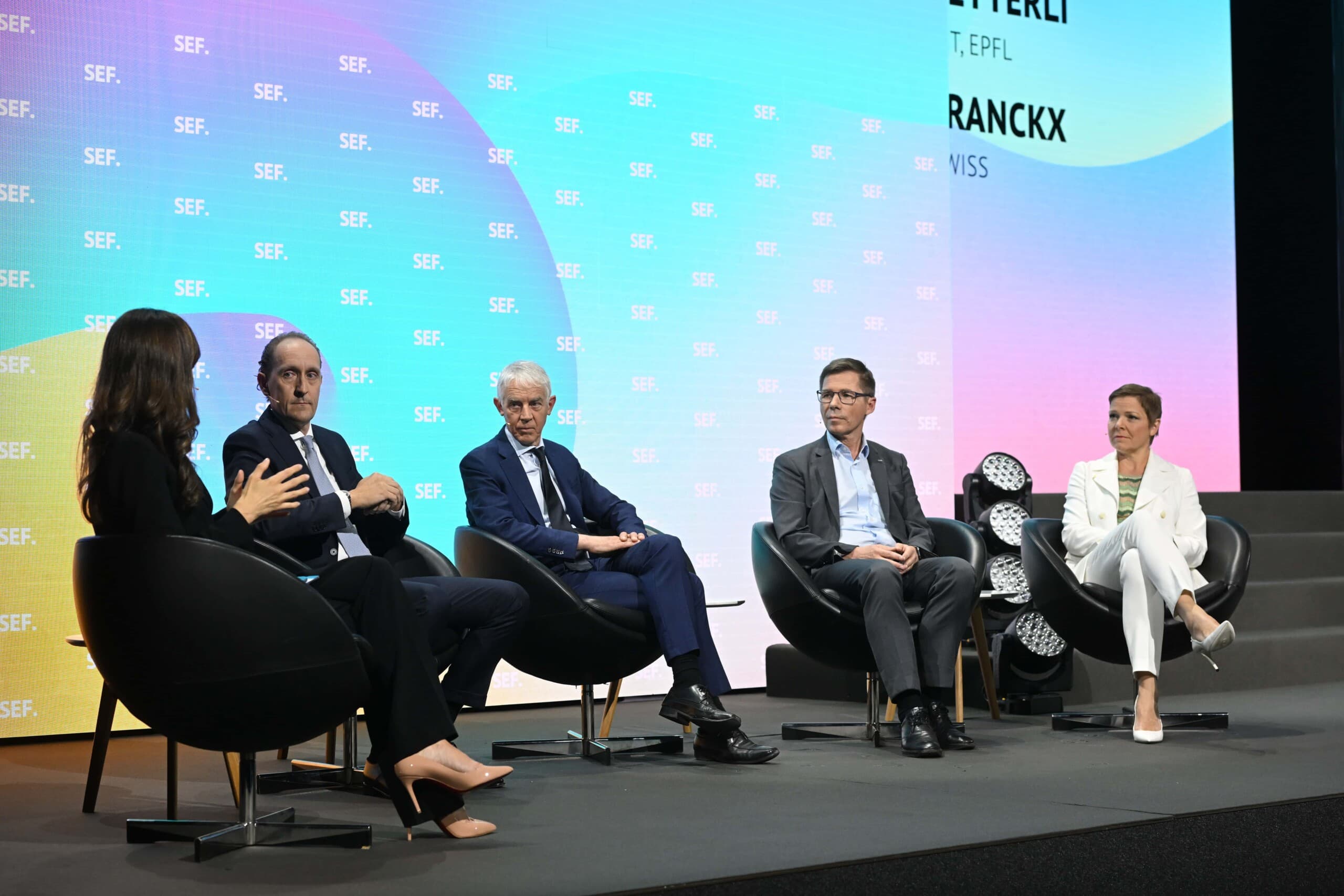 Swiss CEO Dieter Vranckx, EPFL President Martin Vetterli, ETH President Joël Mesot and Alpiq CEO Antje Kanngiesser at the Swiss Economic Forum (left to right). Source: SEF
Swiss CEO Dieter Vranckx, EPFL President Martin Vetterli, ETH President Joël Mesot and Alpiq CEO Antje Kanngiesser at the Swiss Economic Forum (left to right). Source: SEF
With new technical solutions, the coalition wants to create additional options to drive the Swiss transformation in the energy sector. Options are to be analysed systemically in order to find the best possible solutions in terms of security of supply and costs. The coalition will be formally established by the end of 2023 in order to launch the first projects in early 2024. Demonstrators in the megawatt range will be built on the basis of existing technologies, which are to be productive from 2028 and will serve as research platforms. A budget of around CHF 100 million is needed for this in the first phase. (pd/jas, 27 June 2023)
You might also be interested in
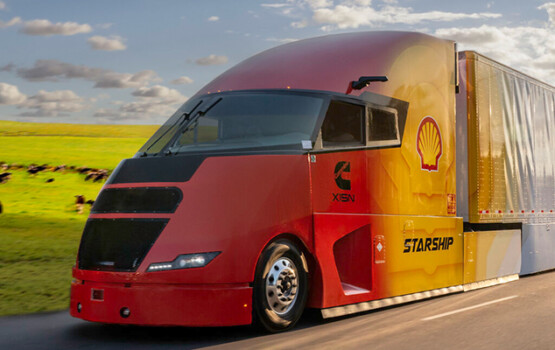
Shell Starship on record hunt
